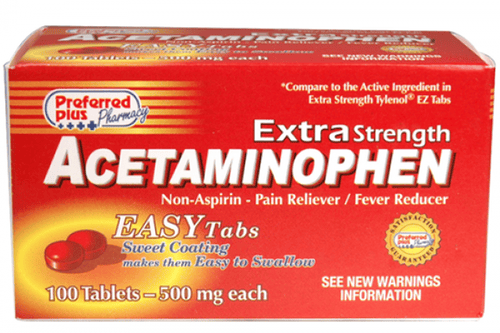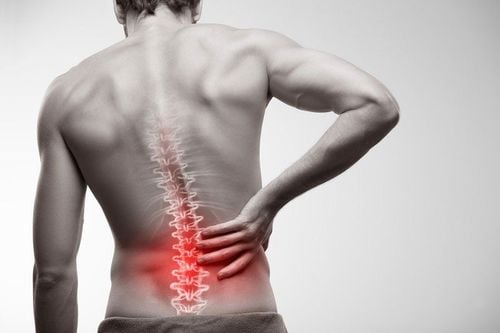This is an automatically translated article.
Aceclofenac is indicated for the relief of pain and inflammation in people with osteoporosis, an autoimmune disease that causes arthritis, and ankylosing spondylitis. Taking the medicine exactly as prescribed by the doctor will help to limit the unwanted side effects.1. What is Aceclonac?
Aceclonac belongs to the group of non-steroidal anti-inflammatory drugs (NSAIDs), which have anti-inflammatory and analgesic properties.The drug works by blocking the production of prostaglandins. Prostaglandins are released at the site of injury, immune responses, and play an important role in both the body's inflammatory response as well as stimulating bone resorption.
2. Indications for the use of Aceclonac
Aceclofenac is an analgesic and anti-inflammatory drug indicated in the following cases:
Aceclofenac to treat toothache; Injury; Backache ; Osteoarthritis; Rheumatoid arthritis ; Ankylosing spondylitis.
3. Dosage and how to use Aceclonac
Dosage of Aceclofenac:
Adults: Use a dose of Aceclofenac 200 mg per day, taken once. Dosage and number of times to take may change according to the instructions of the doctor/pharmacist. If you forget a dose of Aceclonac, take it as soon as possible. However, if it is almost time for your next dose, skip the missed dose and take your next dose at the prescribed time. Do not take double the prescribed dose of Aceclonac.
4. Contraindications to the use of Aceclonac
Do not use Aceclonac in the following cases:
The patient is sensitive to any ingredient of the drug; Asthma ; Progressive peptic ulcer; Pregnant and lactating women.
5. Drug interactions
It should be noted when combining Aceclonac with the following drugs:
Lithium; Digoxin; Oral diabetes medication; Anticoagulants; Diuretic; Other pain relievers.
6. Aceclonac side effects
Aceclonac can cause some of the following side effects:
Risk of having a stroke ; Severe allergic reactions such as anaphylaxis. Symptoms of anaphylaxis include difficulty breathing, wheezing, unusual pains and vomiting; Facial edema; CKD . Stop taking Aceclonac and tell your doctor if you experience:
Symptoms of indigestion or heartburn. Abdominal pain or other stomach-related symptoms.
7. Some notes when using Aceclonac drug
The following subjects need to be noted before using Aceclonac:
People with symptoms of gastrointestinal disorders; History of peptic ulcer; Recovering from surgery; There are symptoms of infection; Severe liver and kidney failure; Heart failure ; Are taking diuretics ; People who regularly drink alcohol; Elderly. Children < 6 years old: The dose of Aceclonac has not been determined. Aceclonac overdose symptoms include:
Headache; Nausea and vomiting; Abdominal pain in the epigastrium; Digestive system disorders; Gastrointestinal bleeding ; Confusion, disorientation; Comatose; Sleepy; Dizzy; Tinnitus ; Lower blood pressure; Respiratory failure ; Faint; More rarely, convulsions. In case of significant overdose, renal failure and acute liver damage may occur. If you experience any of the above symptoms of overdose, call for medical help urgently or take the person to the nearest medical facility.
Above are the uses, doses and notes when using Aceclonac. To ensure the safety of your health and maximize the effectiveness of treatment, you need to take the medicine exactly as directed by your doctor.
Please dial HOTLINE for more information or register for an appointment HERE. Download MyVinmec app to make appointments faster and to manage your bookings easily.













